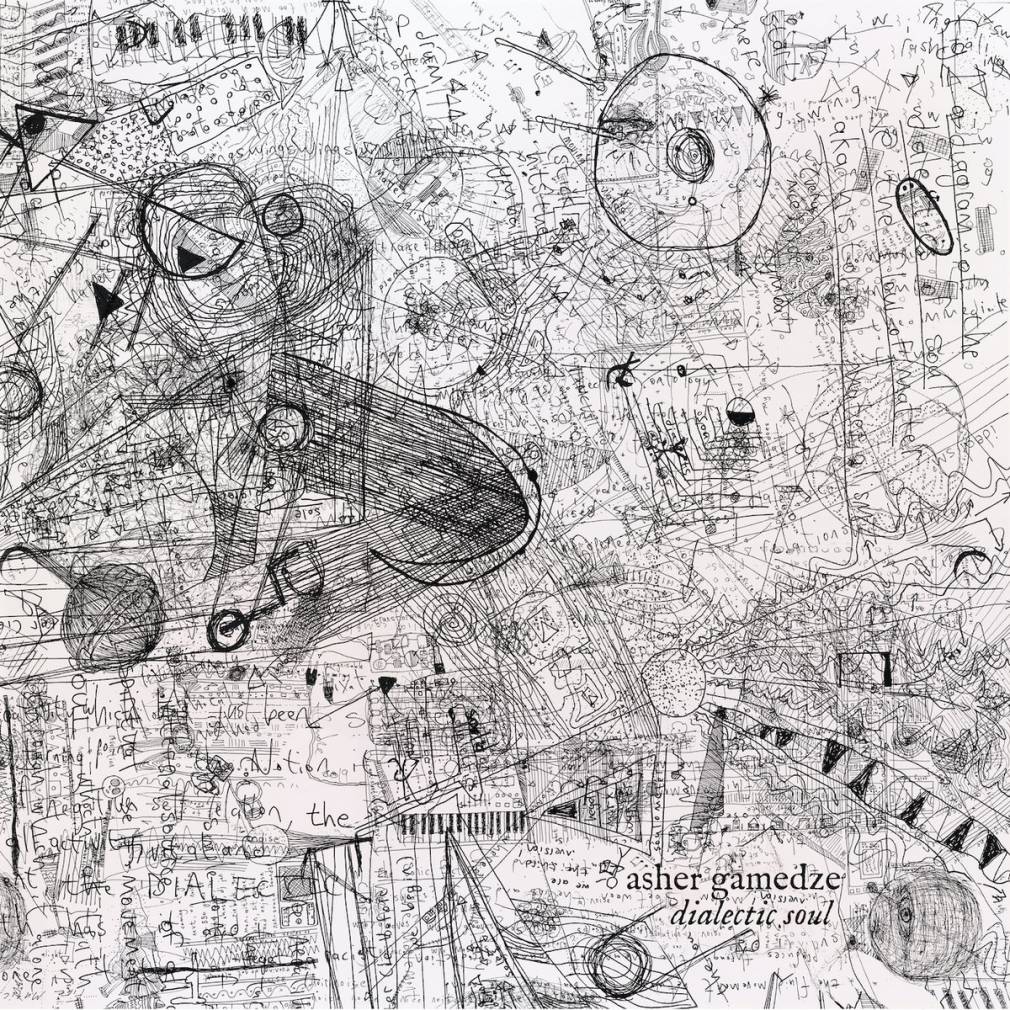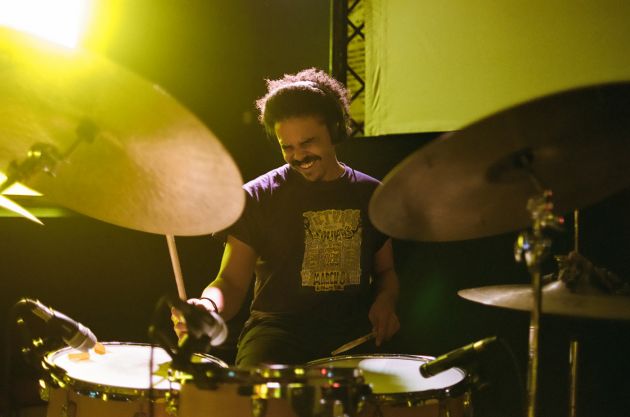South African drummer Asher Gamedze announces his debut album Dialectic Soul on the British label On the Corner. Discussion with this virtuoso of the sticks.
The fifteen convoluted minutes of the song “Capetown” by singer and clarinetist Angel Bat Dawid, representative of Chicago’s avant-garde jazz scene, already gave an idea of the man’s skill when he sits behind a drum set. Asher Gamedze, a native of the city concerned, takes the lead on a double album, surrounded by bassist Thembinkosi Mavimbela, saxophonist Buddy Wells, trumpeter Robin Fassie-Kock and, occasionally, singer Nono Nkoane. Dialectic Soul is a spiritual and progressive jazz album whose complexity hides many metaphors. These casual pieces are punctuated by the dexterity and quiet strength that characterize the playing of this drummer with philosophical ideas, guided by the themes of resistance to colonialism and perpetual movement.
What is the main story behind the album?
The album is about the unfinished and always unfolding practices and traditions of resistance, and how the motion of these things is imperative to imagining, articulating and building new worlds within worlds. It’s about the work and expression of the soul historically.
What is the link between the State of Emergence Suite that you already released, and the rest of the tracks?
(to answer, the artist quotes some of the liner notes of the record, editor’s note) This suite, my composition, introduces the themes that constitute the album. It attempts to conceptually represent the colonial dialectic, the violence of colonialism-capitalism and the many different chapters and phases of resistance to it. State of Emergence speaks to the continual necessity of motion in our resistance and in our imagination and building of alternatives. Resistance is always in a state of emergence, never complete, never finished, always moving.
i. Thesis: The solo drums in free time symbolise autonomous African motion, moving through and resolving its own contradictions. The saxophone introduces the violence of colonialism and the necessity of reflecting deeply and honestly on how that has shaped us and our current conditions.
ii. Antithesis: Steve Biko once wrote that Black Consciousness is the antithesis of white supremacy. From Coltrane to Cabral, Makeba to Malcolm, the Haitian revolution to Nehanda, this movement is about the many movements that have attempted to make the unthinkable – Black freedom – thinkable and real. Our responses to the violence of colonialism.
iii. Synthesis: This is our refusal of the conditions imposed on us. It is the ongoing struggle against the material conditions we are subjected to. It is the ongoing struggle, and the positive manifestation of resistance, against the forms of violence and silence we are subjected to.
How do you translate those topics with your drums?
We can think about rhythm as a relationship between time and motion, it’s how we move within, or in relation to time. Every musical tradition has its own ways of moving: harmonically, moving the body, the mind, the soul, etc. And percussion always seems to play an important role articulating that motion. So my approach to playing drums is always “how should this music feel? And how do I put that feeling into motion with this instrument?”
What kind of process have you been through with the other musicians ?
I had separate sessions with the musicians before we all got together where I showed them some of the melodic and rhythmic concepts that the tunes were based on. And then we spent a morning in my bedroom going through the tunes collectively before heading to the studio that afternoon.
We learn that the album has been recorded in two days only. Therefore, I assume there is a lot of improvisation, isn’t it?
Yes, I know all of the musicians for a long time and have played and hung out with them in different spaces and different settings. The music is just a continuation and an extension of those relationships into the sonic realm. My compositions, or the song concepts, these are just the basis of connecting, the introduction to getting together so that we can try to create something beautiful together, that beauty comes from, and actually is itself, the improvisation.
The album will be released on July 10, 2020 via On the Corner. Pre-order it here.





